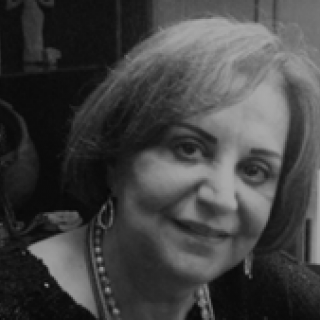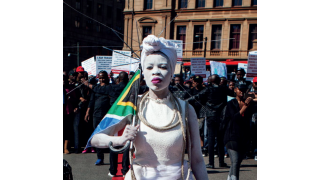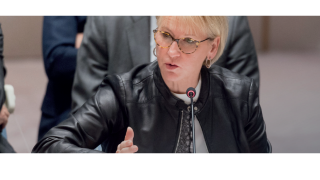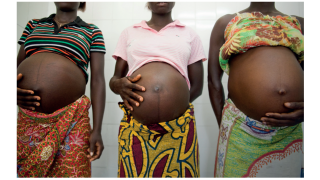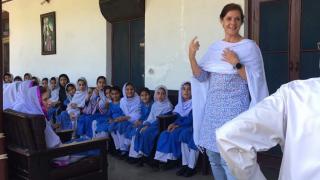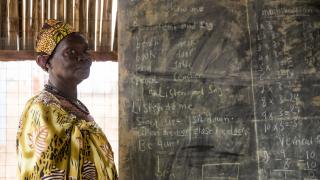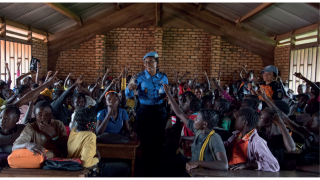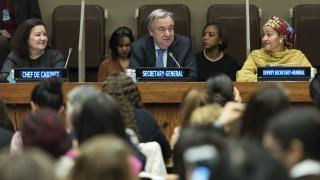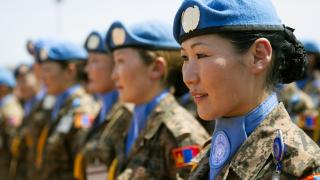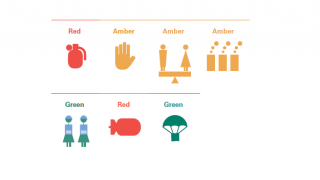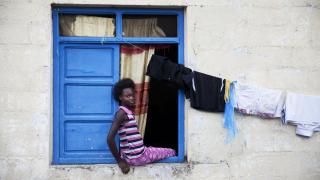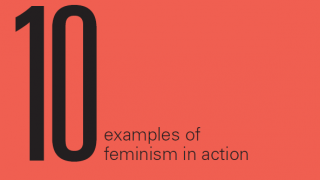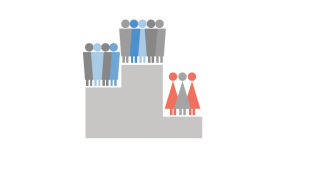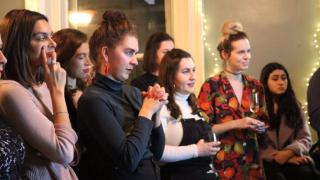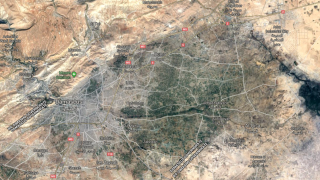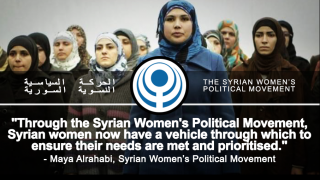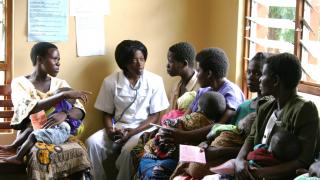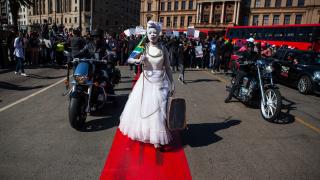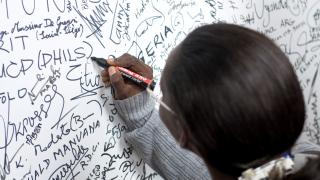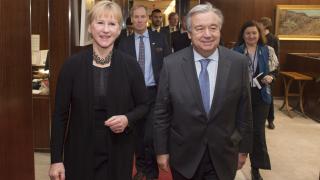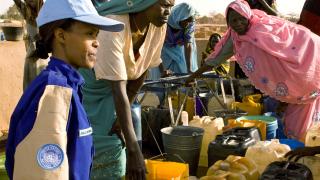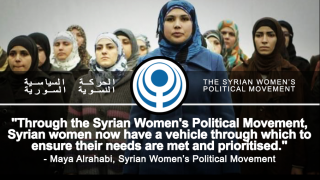
Syrian women will not be sidelined in Syria’s political peace process. We will not be used as token symbols of consensus, devoid of political demands or democratic aspirations for our country. That’s why in October, Syrian women political leaders, feminist icons and civil society representatives met in Paris to launch the Syrian Women’s Political Movement (SWPM). An inclusive movement encompassing all Syrians who believe in democracy and gender equality, the SWPM refuses to accept as legitimate any solution that undermines women’s rights, aiming to achieve a future Syrian state free from both tyranny and terror.
Throughout the Syrian conflict, women have led calls for democracy, equality and inclusivity while also bearing the brunt of the violence. Despite this, we have been vastly under-represented and excluded from decision making roles. In the UN-backed Geneva peace talks, women often serve as tokenized window dressing for inclusion. But we are more than peace activists,we are a potent political force.
The SWPM builds on a legacy of women’s political advocacy, born within the confines of President Assad’s repression. When movements in the 1970s and 1980s began calling for democratic reform and gender equality, women were arrested, tortured, and abused.
Undeterred, we participated actively in social movements including the so-called “Damascus Spring” in 2000, the “Damascus Declaration” in 2005, and subsequent calls for inclusivity and equality. Regime sponsored arrests continued, however, and many key women leaders were imprisoned for years.
When the revolution began in 2011, it was again women at the forefront. We led peaceful demonstrations, formed local coordination committees and organised spontaneous relief organizations despite the regime’s escalation of brutal violence. As the repression deepened, many women activists were forced to flee. Again, we continued our work in exile, forming women's and feminist organisations outside Syria to address the issues we face.
As a result of women’s tireless advocacy efforts, UN Special Envoy Staffan de Mistura formed the Women's Advisory Board (WAB) in 2016 to ensure that women’s voices were adequately reflected in the peace process, and other advisory committees began to form. Unfortunately, these committees have not exerted a meaningful impact on the political process or resulted in meaningful participation by Syrian women. Nor have they adequately communicated the demands of women and feminist organisations on the ground.
The SWPM aims to change this by maintaining close connections to these women, particularly those in the so-called “de-escalation zones”, as well as the millions of Syrian women living in exile. Through the SWPM, Syrian women now have a vehicle through which to ensure that their needs are met and prioritised.
Our goal is simple: to lay the foundations for a Syria that is inclusive and diverse, protects the rights of women and minorities, and delivers justice for the millions of Syrians who have been the victims of war crimes and crimes against humanity.
To achieve this, we are seeking to establish a quota of at least 30 per cent, both for women’s representation in a future governing body, and within all parties negotiating peace for Syria. The earlier women can become equal, respected political forces, the higher the likelihood that any future solution will reflect this. With this quota, we are building the foundations for ultimately achieving full equality.
The SWPM also prioritizes transitional justice and accountability for war crimes, both of which are paramount for a sustainable peace. Any solution that does not prioritise accountability will ensure continued instability. An egalitarian, free society is only possible when justice prevails.
The goals of our women’s movement will remain out of reach as long as Assad and his cronies remain in power. Assad’s forces have repressed women’s movements for decades, and have committed countless atrocities that undermine women’s rights to freedom, dignity and survival. If the international community is serious about protecting women’s rights in Syria, then it must join our calls for a truly democratic Syria, free of tyranny and the terrorism it breeds.
Dr. Al-Rahbi has been an advocate for women and women’s rights throughout her political career , including as the President of the Maan Group, the Coalition of Syrian Women for Democracy, and the Syria Women’s Lobby.
A prolific writer, she has published numerous articles and two books. She worked for the Syrian Ministry of Health for more than two decades and was a professor at the Faculty of Medicine.

